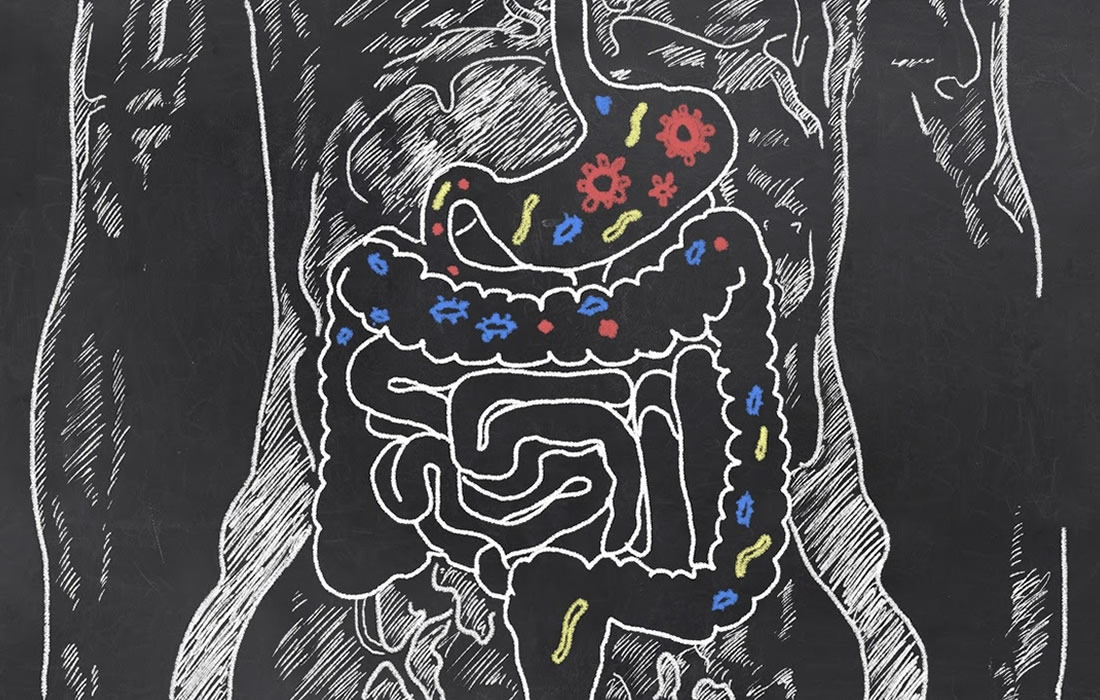Regenerative Medicine News and General Information
Healthy Gut Microbiome Necessary for Muscle Growth
What is the gut microbiome?
The gut microbiome is a dynamic ecosystem that consists of trillions of bacteria, fungi, and other microbes that live inside the digestive system. It greatly influences overall health, and usually, we notice its effects only when there is an imbalance.
The human microbiome is composed of bacteria, archaea, viruses, and eukaryotic microbes that reside in and on our bodies. These microbes have tremendous potential to impact our physiology, both in health and in disease.
They contribute metabolic functions, protect against pathogens, educate the immune system, and affect most of our physiologic processes through these essential functions.
An individual’s microbiome is relatively stable over time, but there is variability at the extremes of age and among different individuals. Diet and other environmental factors also affect the composition of the microbiome.
What happens if the microbiome changes?
Having a disrupted gut microbiome, whether due to poor diet or antibiotic treatment, can impact the digestive, immune, and central nervous systems and various bodily functions and processes.
Scientists have established a link between the microbiome and exercise; and, more recently, between the microbiome and muscle growth.
A group of researchers conducted a study involving mice in which they used antibiotics and weighted wheels—the study published in The Journal of Physiology. The researchers analyzed 42 female mice and administered antibiotics to one group via their drinking water, and kept the other group germ-free. The mice voluntarily exercised on running wheels for about nine weeks; they measured and compared both groups’ skeletal muscles, including the arms and legs. Both groups of mice ran for similar amounts of time during the training period, and the scientist concluded that the antibiotics did not have a profound effect on running performance.
What antibiotics did was deplete the gut microbiome levels. Drugs caused mice to experience dysbiosis, which is an imbalance in the gut microbiome. They found that the group that received antibiotics had slower and less pronounced muscle growth in response to exercise, which suggests that an intact microbiome is necessary for muscle to grow following exercise.
There have been a few studies suggesting the gut microbiome may impact muscle growth in mice and pigs. Evidence is also growing by the day.
One of the researchers Prof. John McCarthy, Ph.D. said in an interview that: “From an athletic standpoint, world-class runners were found to have more of a particular type of bacteria that provided an additional source of energy, which was thought to help them run faster.”
Another study from 2015 found that mice with no microbiome had reduced skeletal muscle mass, and authors from the study conclude that gut microbial status is crucial for exercise performance.
Conclusions
All of these studies suggest that there are factors within the gut microbiome that promote muscle mass. Previous studies have indicated that increasing fiber intake for just two weeks can significantly alter a person’s microbiome and increase the species of bacteria that break down fiber.
Although it is too early to know what the clinical implications of the study are, Prof. McCarthy said the findings do suggest “a healthy gut microbiome will contribute to getting the most benefit out of regular exercise in terms of skeletal muscle.”
The researchers are looking to identify which substances produced by gut bacteria can help muscles fully adapt to exercise and improve athletic performance. Other studies have also found similar results. In Singapore, a survey from the Nanyang Technological University found that mice without gut microbiomes have weaker skeletal muscles and produce less energy than mice with gut microbes.
Many studies have reported that changes in gut microbes occur during obesity, liver disease, and diabetes. These studies also suggest that gut microbes are involved in cancer and neurological conditions that destroy brain tissue. As a result of these revelations, researchers are becoming increasingly interested in altering gut microbes as a way to treat these and other conditions.
Source:
Shreiner AB, Kao JY, Young VB. The gut microbiome in health and in disease. Curr Opin Gastroenterol. 2015;31(1):69-75. doi:10.1097/MOG.0000000000000139

